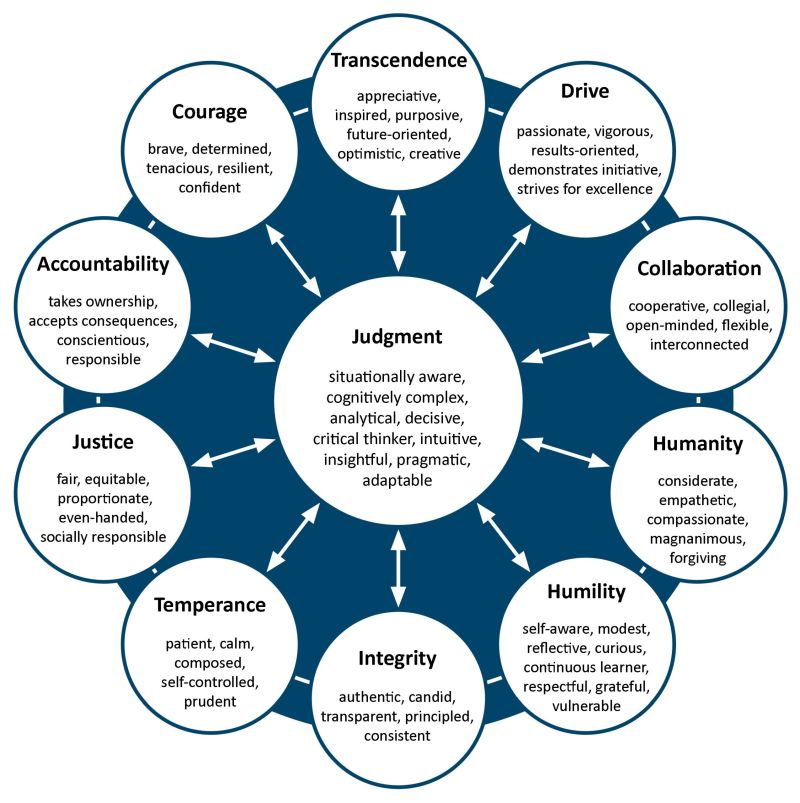Character: The Missing Piece in Leadership Development
In a world grappling with frequent, complex crises — from climate change and economic instability to ethical lapses in major corporations — the need for leaders with strong character has never been more apparent. In their recent article, “Out of Character,” Gerard Seijts and Kimberley Young Milani explore this theme, arguing that the erosion of trust and ethical standards within organizations stems from a lack of character among leaders. They illustrate how some of the most catastrophic corporate failures, including Boeing’s safety lapses and Volkswagen’s emissions scandal, trace back to weak corporate governance rooted in deficiencies of character.
The authors make a powerful case for elevating character to the same level of importance as technical skills in leadership development. Drawing on recent crises, they demonstrate that leadership without a foundation in character creates environments where profit can overshadow safety, ethical standards may be compromised, and trust between leaders and teams deteriorates. Seijts and Milani emphasize that character is not a “soft” skill; rather, it’s a crucial element for effective leadership that underpins decision-making, ethical behavior, and the ability to inspire trust. Leaders with strong character, they argue, are better equipped to create resilient, ethical organizations that can navigate complex challenges.1
To make character development actionable, Seijts and Milani suggest that organizations need structured ways to assess and cultivate character. Boards and executive teams must prioritize character by selecting, developing, and promoting leaders who embody traits like humility, accountability, integrity, and courage. However, these qualities are often difficult to measure and even more challenging to develop without intentional focus. The Leadership Character Insight Assessment (LCIA) offers a practical solution, equipping organizations with a scientifically validated approach to assess and cultivate the character traits vital for effective leadership.
The LCIA: A Practical Solution for Leadership Character Development
For organizations seeking a way to assess and cultivate character, the LCIA offers an effective, evidence-based solution. Created by SIGMA in partnership with leadership experts at the Ivey Business School, the LCIA is designed to assess and develop the essential character dimensions that Seijts and Milani advocate for in their article. Unlike traditional assessments that emphasize skills or competencies, the LCIA specifically measures character traits that influence how leaders see, interpret, and act in various situations.
Integrating the LCIA: Practical Steps to Embed Character in Leadership
The LCIA can be used to embed character within leadership practices by:
- Elevating the Importance of Character
One of Seijts and Milani’s main arguments is that character needs to be treated with the same seriousness as competence. The LCIA offers a tangible way for organizations to prioritize character, integrating it into their leadership development processes. By providing measurable insights into character, the LCIA transforms what is often seen as an abstract concept into a concrete and actionable focus area, ensuring that character is treated as a cornerstone of effective leadership. - Providing a Common Framework and Language
The LCIA delivers a structured framework for understanding character, making it easier for organizations to hold meaningful and productive conversations. This common language helps align leadership development efforts by setting clear expectations and measurable goals for character growth. By standardizing the way character is assessed and discussed, the LCIA ensures that character development becomes an integral and actionable part of leadership practices. - Identifying Key Character Traits for Leadership Effectiveness
The LCIA identifies 12 essential dimensions of character, outlined in the Leader Character Framework, which are critical for effective leadership. These dimensions are scientifically validated and directly tied to leadership outcomes. By distilling character into these measurable components, the LCIA provides a clear and actionable framework for understanding the traits that drive leadership success. - Increasing Self Awareness
Through self-report and 360-degree feedback, the LCIA allows leaders to gain a deeper understanding of how their character influences their effectiveness. This awareness empowers leaders to develop their strengths and address any potential blind spots that could impact their decision-making and relationships with others. - Promoting Ethical Leadership and Organizational Resilience
Seijts and Milani note that a lack of character among leaders can contribute to significant risks for organizations, as seen in cases like Boeing. By incorporating character assessments like the LCIA into recruitment and succession planning, organizations can ensure that they’re selecting and promoting individuals who not only have the necessary skills, but also embody the character traits needed to lead ethically and effectively. This focus on character builds a culture of integrity and trust across the organization.2
Why Character Matters Now More Than Ever
Character, as Seijts and Milani argue, is foundational for leaders facing the unique challenges of today. The LCIA is grounded in rigorous research and provides organizations with practical resources to support character development at every stage of a leader’s journey. It serves as a powerful predictor of leadership performance by augmenting competency-based assessments with insights into character — insights that are essential for sustaining trust, resilience, and accountability in today’s business environment.
Organizations that embrace tools like the LCIA can take meaningful steps toward cultivating leaders who not only excel in their roles, but also embody the values that inspire trust and drive sustainable success. Embedding character into leadership practices isn’t just a solution for today’s crises; it’s a long-term investment in building stronger, more resilient organizations.
Ready to Invest in the Character of Your Leaders?
If you are ready to prioritize character as part of your leadership development strategy, the LCIA offers a structured, evidence-based solution. Learn more about the LCIA by completing the form below and start developing leaders who are equipped to lead ethically, make sound decisions, and foster a culture of trust.
Speak with an Expert
Are you interested in using the LCIA? Submit the form to learn more. Our team will contact you shortly.
